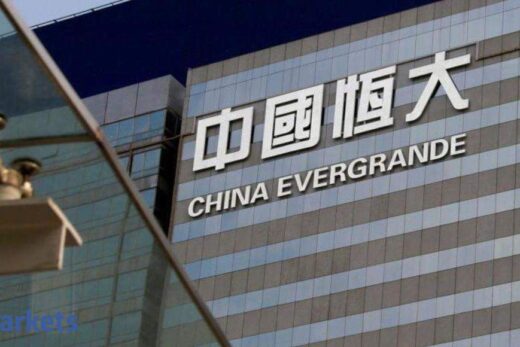Evergrande, the world’s most indebted developer, has been stumbling from deadline to deadline in recent weeks as it grapples with more than $300 billion in liabilities, $19 billion of which are international market bonds.
The company has not defaulted on any of its offshore debt obligations, but another overdue $148 million bond payment must be made on Wednesday. There was no word on that payment as of early afternoon Asia time.
The developer, which also has coupon payments totalling more than $255 million on its June 2023 and 2025 bonds on Dec. 28, declined to comment when contacted by Reuters about its Wednesday payment deadline.
China’s property woes rattled global markets in September and October. There was a brief lull in mid-October after Beijing tried to reassure markets the crisis would not be allowed to spiral out of control.
But concerns have resurfaced, with the U.S. Federal Reserve warning on Tuesday that China’s troubled property sector could pose global risks.
More developers are seeing their credit ratings slashed on their worsening financial profiles.
S&P Global Ratings said on Wednesday it had downgraded property developer Shimao Group Holdings’ rating to “BB+” from “BBB-” over concerns that tough business conditions would hinder the company’s efforts to reduce debts.
S&P considers a rating under “BBB-” to be speculative grade.
Worries over the potential fallout from Evergrande have also roiled China’s property sector in recent days, slamming the bonds of real estate companies amid worries the crisis could spread to other markets and sectors.
Shares of developer Fantasia Holdings plunged 50% on Wednesday after it said there is no guarantee it will be able to meet its other financial obligations following a missed payment of $205.7 million that was due Oct. 4.
FINANCING OPTIONS
Underlining the liquidity squeeze, some real estate firms disclosed plans to issue debt in the inter-bank market at a meeting with China’s inter-bank bond market regulator, the Securities Times reported on Wednesday.
In the near future, real estate companies will issue bonds in the open market for financing, while banks and other institutional investors will assist via bond investment, said the paper.
Debt-laden developers including Evergrande and peer Kaisa Group have also been looking to raise cash to repay their many creditors by selling some of their property and other business assets.
Beijing has been prodding government-owned firms and state-backed property developers to purchase some of Evergrande’s assets to try to control the fall.
Rising concerns about the developers’ woes spreading to other sectors was visible on Wednesday as the spread, or risk premium, between lower risk, investment grade Chinese firms and U.S. Treasuries widened to a more than five-month high.
Despite the debt woes of Evergrande, its electric vehicles (EV) unit is pushing ahead with its business plan. The unit is seeking Chinese regulatory approval to sell its inaugural Hengchi 5 sport-utility vehicles.
China Evergrande New Energy Vehicle Group Ltd plans to sell HK$500 million ($64 million) worth of shares to fund production of new energy cars.
Shares in Evergrande were little changed from previous close on Wednesday afternoon, while the EV unit was up 2.2%.
Founded in Guangzhou in 1996, Evergrande epitomised a freewheeling era of borrowing and building. But that business model has been scuttled by hundreds of new rules designed to curb developers’ debt frenzy and promote affordable housing.
Any prospect of Evergrande’s demise raises questions over more than 1,300 real estate projects it has in some 280 cities.



